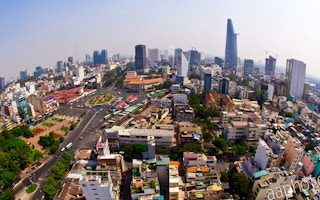Over the last 11 years, HCM City has resolved pollution problems at 1,400 manufacturers in the city by either relocating the factories or by suspending production operations.
Nguyen Huu Tin, deputy chairman of the city’s People’s Committee, said both public and private companies had been encouraged to recycle plastics and make fertiliser from waste.
Speaking to the National Assembly’s Science, Technology and Environment Committee recently, Tin said that waste had also been used as fuel for power generators as well.
Tin said the city had set a target to treat 100 per cent of its harmful waste by 2015.
Between 2013 and 2015, the city will focus on solving urgent waste and wastewater treatment problems associated with the city’s canals.
Works has been progressing on the basins of Nhieu Loc - Thi Nghe Canal, Tau Hu - Ben Nghe Canal and the Tan Hoa - Lo Gom Canal.
The city’s is also improving its drainage system to help better control flooding.
All industrial parks in the city have their own waste water treatment systems.
In addition, Tin said waste sorting by residential households had been piloted in District 6 and Binh Thanh District.
Starting this October, solid waste generated by enterprises in industrial parks and export processing zones in HCM City will be sorted at source for recycling.
Under a plan prepared by the municipal Department of Natural Resources and Environment, solid waste will be sorted at source into three categories - organic waste, compostable and non-compostable waste.
Organic waste like vegetables, fruit and leftovers will be collected and recycled to make compost.
Enterprises will be required to use 240-litre containers to contain separated waste that are collected once every two days.
The department is working with the HCM City Export Processing and Industrial Zones Authority to provide training on waste separation at source for enterprises, waste collectors and processors from now through September.
A lack of legal documents has been blamed for the failure of many pilot programmes on waste separation at source in the city since 2002, department officials said, adding that the new plan aims to overcome this and other shortcomings.

















